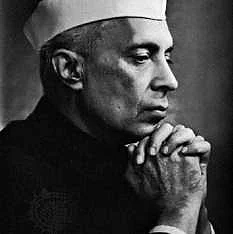Nehru’s Word: Censorship is invasion of newspapers’ rights
Amid ongoing debate about government measures to extend oversight on digital and other media, NH readers may be interested to know how the paper reacted to censorship orders of British Govt in 1940

In view of the ongoing debate about government measures to extend oversight on digital and other media, readers of National Herald will be interested to know how the paper reacted to the censorship orders of the British Government of India in 1940 on the pretext of the needs of the ongoing WWII. We reproduce below extracts from the note written by Jawaharlal Nehru, Chairman, NH Board of Directors, on October 27, 1940”
“In view of the Order dated October 26, 1940 issued by the Government of India under rule 41 of the Defence of India Rules, a number of Directors of the Associated Journals Ltd. met in Allahabad on October 27, 1940 to consider the situation. The following Directors were present: Jawaharlal Nehru (Chairman), Kailas Nath Katju, Rafi Ahmad Kidwai, Mohanlal Nehru and Raghunandan Saran.
It was decided that, in spite of the Government Order, the National Herald should be continued, but that certain changes be made…. In each subsequent issue of Herald, the Government Order should be reproduced in the editorial column. Below this should appear the following note daily: ‘As the above Order of the Government of India prohibits newspapers from giving expression to India’s attitude to the war and to many vital aspects of Congress policy, the Directors of the Associated Journals Limited have decided to discontinue leading articles and other editorial matter in the National Herald. They regret also that they will be unable to give important news in regard to Congress activities.’
This (the following note) is to appear in the Dak and morning edition of the Herald dated 29th October 1940 in the editorial column. The Government Order referred to should be given above it.
‘The Directors of the Associated Journals Limited have given their careful consideration to the situation created by the directions issued by the Chief Censor at Delhi and the local censors to editors and publishers of newspapers, and, in particular, to the Order dated October 26, 1940 issued by the Government of India under rule 41 of the Defence of India Rules.
This Order is a comprehensive invasion of the elementary and well-established rights of newspapers and a prohibition from giving publicity to facts and occurrences, as well as to opinions widely held in the country. The Directors have followed a policy of giving full publicity to all well-authenticated facts in the National Herald, regardless of their implications, as they have believed that it is the duty of a newspaper to give news fully and frankly to the public. In the editorial columns, the Herald has adhered to the policy of the Indian National Congress….
The censorship regulations and the new Order of the Government of India, which has the force of law…. endeavours to suppress news and expressions of public or individual opinion in regard to war, and this may well be extended to include all news and opinions which the government of the day does not approve of. It is no doubt meant to include many vital Congress activities. No independent newspaper or press can carry on its service of the public under such conditions, and it may well become a means of deluding the public by the suppression of vital information.
The Directors, after giving the most earnest thought to the new situation that has been created, have come to the conclusion that they should still endeavour to continue to serve the public through the Herald, although the opportunities of such service are strictly limited now….
“As the Herald is prohibited from expressing its opinion regarding war policy in relation to India, and may not even discuss Congress policy, there will be no leading articles or other editorial matter in future. Special articles on particular topics will, however, appear from time to time. The Herald will give, as far as possible, a factual account of the war. Messages received from the censor’s office or through other sources, meant as war propaganda, will not be published. War loan advertisements will also not be published.
“The Directors crave the indulgence of the readers of the Herald and of the public, and seek their help and cooperation in this time of grave crisis when the fundamental and elementary liberties of the people are sought to be crushed.”
(Selected and edited by Mridula Mukherjee, former professor of history at JNU and former Director of Nehru Memorial Museum and Library)
Follow us on: Facebook, Twitter, Google News, Instagram
Join our official telegram channel (@nationalherald) and stay updated with the latest headlines
Published: 07 Mar 2021, 8:44 AM
